Occupational Safety Training for Tour Guides
99,000 ₫
Note: The above price is calculated for one person, and the price may fluctuate depending on the number of learners participating in the course and market movements. For more accurate pricing support, please refer to the price list or contact our consulting staff directly.
The Safety Training Course for tour guides is a course that equips knowledge of group 3 occupational safety. The course will enhance learners’ awareness of how to prevent workplace accidents during the manufacturing process. Accordingly, occupational safety training content is closely aligned with Article 18 Decree 44/2016/ND-CP.
Table of Contents
Toggle1. Overview of Tour Guides
a. The Important Role of Tour Guides
The role of tour guides is very important in the tourism industry because they act as leaders and provide information to travelers throughout the journey. Here are some key roles of tour guides:
- Providing information and explanations: Tour guides help travelers understand tourist sites, local culture, history, architecture, and other important information. They provide detailed explanations about landmarks, historical sites, museums, and answer travelers’ questions.
- Ensuring safety and comfort: Tour guides are responsible for ensuring the safety of travelers throughout the journey. They give guidance on safety measures, regulations, and precautions when visiting locations. Guides may also help resolve issues that arise during the trip to ensure travelers’ comfort.
- Creating unique experiences: Tour guides can create unique and special experiences for travelers. They may direct travelers to less-known spots, explore unique destinations, or share interesting stories and personal anecdotes. Guides help create the best experiences for travelers throughout the trip.
- Communication and interaction: Tour guides act as the main communicator between travelers and local communities. They demonstrate good communication skills, knowledge of foreign languages, and thorough understanding of local culture. Guides also facilitate interactions between travelers and locals, helping travelers deeply experience the local culture.

b. Tour Guides in Different Professional Fields
Tour guides can work in various fields and professions. Here are some common areas where tour guides may operate:
- Cultural tourism: Tour guides specializing in the culture and history of a specific location. They provide information about historical sites, museums, architecture, and local cultural events.
- Nature and environmental tourism: Tour guides in this field have knowledge of geography, ecology, and natural environments. They may guide travelers on nature tours, national parks, reserves, and conservation areas.
- Adventure tourism: Tour guides in this field specialize in adventurous activities such as mountain climbing, trekking, cave exploration, scuba diving, rock climbing, and other adventure activities. They ensure travelers’ safety and provide technical guidance and adventure knowledge.
- Sports tourism: Tour guides in the sports tourism sector have knowledge of sports such as golf, climbing, diving, surfing, cycling, wall climbing, and other sports activities. They may guide travelers to participate in sports and provide technical instructions.
- Culinary tourism: Culinary tour guides specialize in local cuisine and food culture. They may take travelers to explore local specialties, markets, restaurants, and unique culinary experiences.

2. Overview of Safety Training Courses for Tour Guides
a. What is Occupational Safety Training for Tour Guides?
- Occupational safety training for tour guides consists of sessions that equip workers with awareness on preventing workplace accidents. Accordingly, tour guides are classified as Group 3.
- The occupational safety training course helps workers recognize and avoid hazards, reducing the risks of workplace accidents during work.
REGISTER FOR OCCUPATIONAL SAFETY TRAINING SERVICE
b. Training Duration
Initial Safety Training Duration
- Total training time is at least 24 hours, including examination time.
- 8 hours of theory on policies, safety regulations, and labor hygiene laws
- 8 hours of theory on basic knowledge of occupational safety and hygiene
- 4 hours of theory on specialized training content
- 2 hours of practical exercises on specialized training content
- 2 hours of theoretical examination at the end of the course
The safety training center will schedule multiple sessions depending on the availability of the tour guides. Usually, there are 6 sessions over 3 days, provided the enterprise can arrange continuous training time.
Periodic Safety Training Duration
- Before the occupational safety card expires, workers who want reissuance must undergo a periodic occupational safety training, with periodic training duration at least 50% of the initial safety training duration.
Explanation: The total duration of periodic occupational safety training is at least 12 hours, including examination time. After completing the periodic training and passing the test, workers will be reissued or extended their occupational safety card.
c. Course Content
| No. | TRAINING CONTENT | TRAINING DURATION (HOURS) | |||
| Total | Including | ||||
| Theory | Practice | Examination | |||
| I | Basic knowledge of occupational safety and hygiene | 8 | 8 | 0 | 0 |
| 1 | Basic knowledge about hazardous and harmful factors at the workplace. | 4 | 4 | ||
| 2 | Methods to improve working conditions. | 1 | 1 | ||
| 3 | Safety culture in production and business. | 1 | 1 | ||
| 4 | Rights and obligations of employers and employees; occupational safety and hygiene policies and regulations; roles and responsibilities of safety officers. | 1 | 1 | ||
| 5 | Occupational safety rules, signs, safety instructions, use of safety equipment and personal protective equipment; first aid skills, prevention of occupational diseases. | 1 | 1 | ||
| II | On-site training content | 6 | 0 | 6 | 0 |
| 1 | Recognize hazards, rules, signs, and instructions at the workplace. | 2 | 2 | ||
| 2 | Practice safe work procedures; incident handling procedures related to assigned tasks; emergency evacuation procedures. | 2 | 2 | ||
| 3 | Practice basic first aid methods. | 2 | 2 | ||
| III | Final examination of safety training content | 2 | 2 | 0 | 0 |
| Total | 16 | 10 | 6 | ||
See more training content of all 6 groups
d. Occupational Safety Card
After completing the occupational safety training course and passing the examination, workers will be issued an occupational safety card (commonly called Group 3 safety certificate).
The Group 3 safety card includes information such as full name, date of birth, job, and specific working environment. It also contains training duration, official stamp, and signature confirming course completion.
According to the issuance regulations specified in Clause 2 of Article 24 of Decree 44/2016/ND-CP, there are two cases:
- If the employer and employee have an employment contract, the employer must sign, stamp, and seal the safety card for the Group 3 trainee after completing the training course and passing the examination.
- If the worker is freelance or seasonal, without an employment contract, the training unit must sign, stamp, and seal the safety card after the worker completes the training course and passes the examination.

3. Common Hazards Encountered by Tour Guides
Tour guides may be exposed to certain hazards that can affect their health. Here are some common hazards tour guides may face:
- Infectious diseases: Tour guides interact with travelers from around the world, and therefore, may be exposed to infectious diseases such as influenza, dengue fever, traveler’s diarrhea, and other contagious illnesses. They must follow preventive measures and advise travelers on personal hygiene.
- Extreme weather: In some destinations, tour guides may face extreme weather such as heat, cold, storms, or other harsh conditions. They need to prepare and provide guidance to travelers on how to cope with weather conditions to avoid health risks.
- Accidents and injuries: During tours and activities, accidents such as slips, trips, falls, or incidents related to adventurous activities may occur. Tour guides must know basic first aid and provide initial medical assistance to travelers in case of emergencies.
- Environmental hazards: Tour guides may be exposed to polluted environments, harmful chemicals, strong ultraviolet sunlight, or disease-carrying insects. They should provide guidance on protection from these hazards and recommend sunscreen, insect repellent, and other protective measures.

4. Safety Measures for Tour Guides
To help tour guides avoid work-related hazards and ensure their personal safety, here are some important safety measures they should follow:
- Assessment and Preparation: Tour guides should conduct a risk assessment before leading any trip. This includes researching the location, weather conditions, security situation, and health and medical requirements of tourists. Guides should prepare necessary documents and information to support safety and provide guidance to tourists.
- Training and Knowledge Mastery: Tour guides should receive adequate training and fully understand travel safety knowledge. This includes understanding safety regulations and procedures, basic first aid skills, preventing infectious diseases, and measures to prevent accidents and injuries.
- Use of Protective Equipment: Tour guides should use protective equipment such as helmets, reflective vests, gloves, masks, and safety glasses according to the activity and work environment. This reduces the risk of injury and protects against harmful factors such as ultraviolet rays, dust, chemicals, and disease-carrying insects.
- Monitoring Health and Environmental Conditions: Tour guides should monitor their own health and that of tourists throughout the trip. They should pay attention to any abnormal symptoms or illnesses and provide medical support if necessary. Guides should also ensure that the work environment and tourist destinations are safe.
- Regularly conduct workplace environment monitoring in factories, collect and analyze harmful factors for workers, and then adjust to reduce hazards to prevent occupational diseases for them.

5. Salary and Benefits for Tour Guides
The salary and benefits of tour guides may vary depending on factors such as workplace location, level of experience, type of guide, and the travel company they work for. Below is an overview of tour guide salaries and benefits:
- Salary: The salary of tour guides can vary widely, from basic wages for newcomers to higher salaries for experienced and highly skilled guides. Salaries can be calculated based on hourly, daily, or contractual pay.
- Tips: Tour guides may receive tips from tourists as part of their income. The amount usually depends on the tourists’ satisfaction with the service and experience provided.
- Benefits and Allowances: Some travel companies may provide benefits and allowances to tour guides, including health insurance, accident insurance, travel insurance, free airfare or accommodation, transportation support, and meal allowances.
- Learning and Development Opportunities: Tour guides may have opportunities for training to enhance their skills and knowledge in the tourism field. This may include advanced training courses, internships, or participation in workshops and seminars.
Note that these factors may vary and do not represent all cases. Tour guide salaries and benefits may also differ by country and region.
6. Benefits of Occupational Safety Training
An Toan Nam Viet provides your business with excellent benefits upon completing occupational safety training courses in accordance with Decree 44/2016/ND-CP on occupational safety and hygiene for companies, factories, and enterprises.
- Employees can identify potential risks of workplace accidents and take preventive measures to avoid accidents.
- Your business can establish risk prevention measures in production, operation, and maintenance processes.
- Reduce costs associated with workplace safety hazards.
- Uninterrupted production increases labor productivity and product quality.
- Ensure compliance with occupational safety laws, avoiding legal risks.
- Enhance reputation and professionalism, thereby elevating your business brand.
Nam Viet’s training courses are a solution to prevent external factors from endangering individuals, helping them avoid hazards that could result in injury or worse, death.
REGISTER FOR OCCUPATIONAL SAFETY TRAINING SERVICE
7. Customer Feedback After Completing Training
An Toan Nam Viet has years of experience accompanying many businesses in Vietnam in general and in southern provinces in particular. This responsibility is invaluable to Nam Viet, which is why our Occupational Safety Training is increasingly professional. The motivation for An Toan Nam Viet’s growth comes from positive feedback and suggestions from businesses. Below are the responses from partners we have served.
Bac Nam E&C Joint Stock Construction Company
“My first experience using An Toan Nam Viet services was surprising due to the 24/7 enthusiastic support from the consulting team. Class organization was fast and convenient for our company. Many thanks for Nam Viet’s service!”
See more customer interviews after using the service from An Toan Nam Viet
8. Occupational Safety Training Capability of An Toan Nam Viet
An Toan Nam Viet is a reputable and high-quality occupational safety training center in Vietnam, conducting continuous training at production workshops, factories, or construction sites nationwide (all 63 provinces of Vietnam).
REGISTER FOR OCCUPATIONAL SAFETY TRAINING SERVICE
Occupational Safety Training License
- An Toan Nam Viet has been inspected and certified by the Department of Safety under the Ministry of Labor – Invalids and Social Affairs, granting certification to operate occupational safety training. This further strengthens our capacity for occupational safety training.

Materials and Lectures
- Before being used in occupational safety training courses, training materials are reviewed and approved to ensure lectures are accurate and effective.
- Our instructors’ teaching methods follow the standards of An Toan Nam Viet, developed by experts in occupational safety and hygiene training to maximize knowledge absorption for trainees.
Facilities
- Controlling classroom factors affecting training increases teaching efficiency and knowledge retention.
- Our training facilities include spacious classrooms meeting standards for area, lighting, and training equipment, etc.
9. Nationwide Reputable Occupational Safety Training Center
At An Toan Nam Viet, we prioritize professional dedication to occupational safety training. For us, teaching tour guides to protect themselves and ensure safety during their work journey contributes to national development.
To ensure effective training, we meticulously prepare every detail, from teaching tools, equipment, materials, sound, and lighting.
Our occupational safety instructors are experts with many years of experience. They even conduct research on identifying hazards across industries and preventive measures.
Lectures are practical, delivered vividly and clearly to trainees, helping them feel comfortable and absorb knowledge effectively. The content aligns closely with Decree 44/2016/ND-CP.
As a result, trainees learn many preventive measures and how to protect themselves, applying them appropriately in real work situations.
Our training center proudly provides reputable and professional occupational safety training with advantages:
- Competitive training costs while ensuring quality.
- Flexible training schedules to fit company production timelines.
- Fast and lawful certification procedures for occupational safety training.
- Instructors with extensive professional experience.
- Classroom control over factors affecting training to increase teaching efficiency and knowledge retention.
- Lectures tailored to occupational safety in enterprises.
- An Toan Nam Viet works dedicatedly and professionally to support customers accurately and promptly.

10. Additional Occupational Safety Training References
- Occupational safety materials for tour guides
- Occupational safety training materials set
- Occupational safety training test set
- Occupational safety quiz for tour guides
- Occupational safety training slides for tour guides
1 review for Occupational Safety Training for Tour Guides
No comments yet

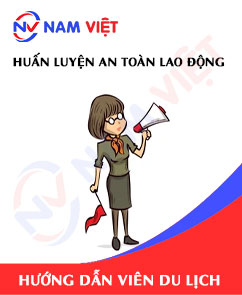

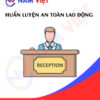
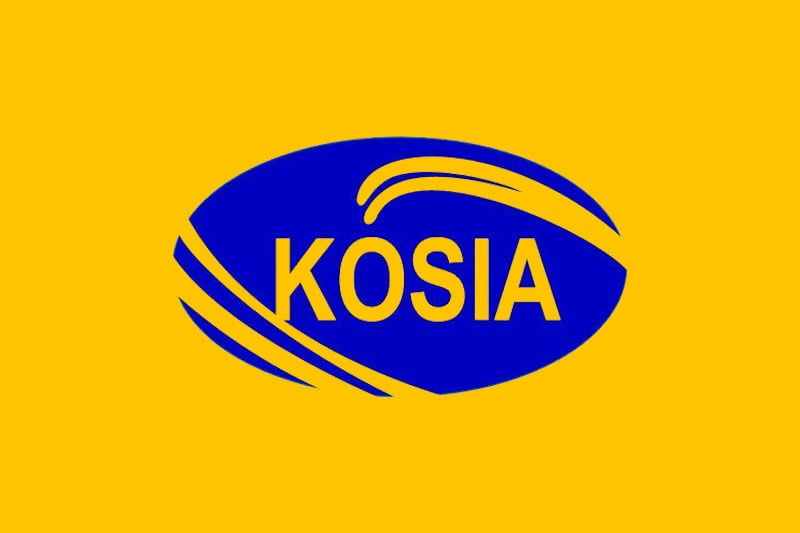
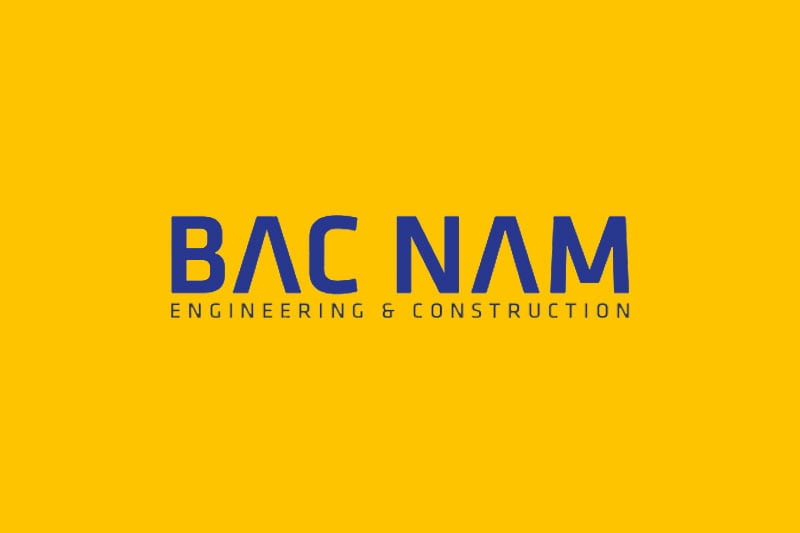

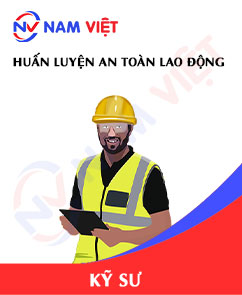

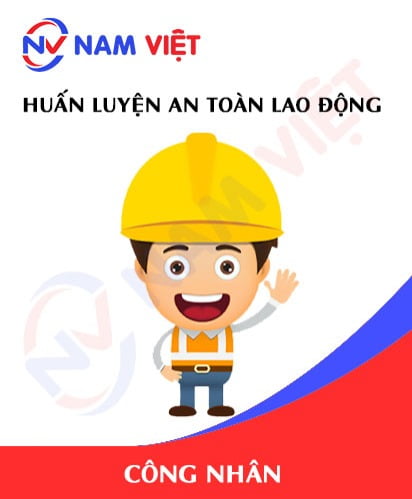



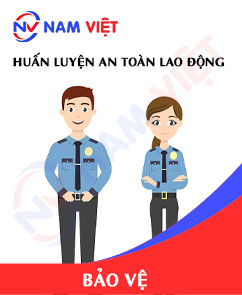

caotiensyhung.07081999
Rất hài lòng với dịch vụ ở đây!